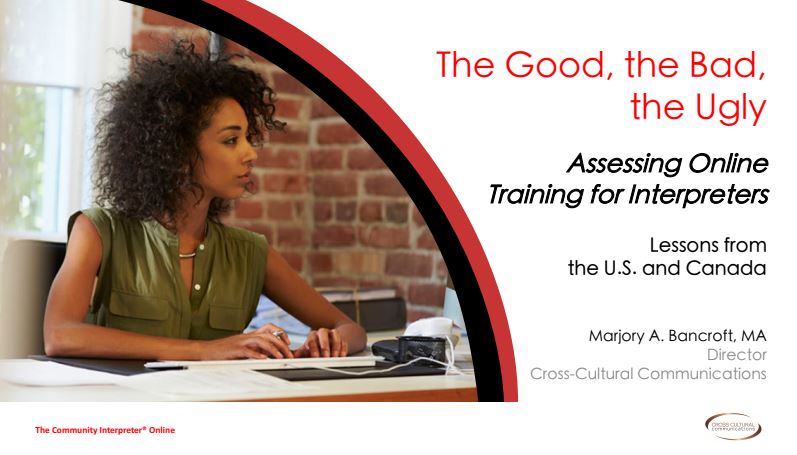How to Become an Interpreter
Can you speak or sign two languages fluently? Have you spent significant amounts of time living in more than one country? Do you like working with people?
Interpreting is a fast-paced, demanding job yet highly rewarding for those who want to make a difference. Read on for the first steps in becoming an interpreter.
Minimum Qualifications to Become an Interpreter
Before working as a professional interpreter, candidates should meet these minimum qualifications:
Be 18 years or older.
Hold a high school diploma or equivalent.
Demonstrate bilingualism and literacy through language proficiency testing.
Hold a certificate for professional interpreter training (at least 40 hours of training).
Language Proficiency
Individuals should be tested for language proficiency in their working languages before working as an interpreter. A language proficiency test assess fluency in a language (written or oral) but not interpreting skills.
Why is language proficiency testing important? Because not everyone who speaks or signs two languages is truly bilingual.
Interpreting as a Professional Career
Complete a 40-hour Foundation Program.
A 40-hour program should include a code of ethics, skills-building activities, mediation techniques, a final assessment and a language proficiency test.
3. Take Continuing Education Courses to maintain certification.
2. Prepare for medical/legal interpreter certification.
An Overview of Interpreting — and How to Join the Profession
To learn more about how to start your career as a professional interpreter, check out this conference presentation given by two of our team members in April 2019.
On-site or Online Interpreter Training?
As with any profession, training is fundamental to becoming a professional interpreter. Training can be done at in-person sessions or online, with advantages and disadvantages to each type. Most importantly, a program should offer a high-quality curriculum and experienced trainer in order to make it worth your time and money!
Learn how to evaluate online interpreter training programs with this conference presentation delivered by CCC’s Director and Founder, Marjory Bancroft, in June 2019.
Giving Voice — While Cherishing Ours!
As interpreters, we should always keep in mind the importance of taking care of our voices. This valuable webinar from CHIA (California Healthcare Interpreting Association), Taking Care of Your Money Maker: Voice Care and Prevention of Voice Disorders, provides an overview of the vocal apparatus and tips and exercises to preserve and strengthen our vocal abilities.






